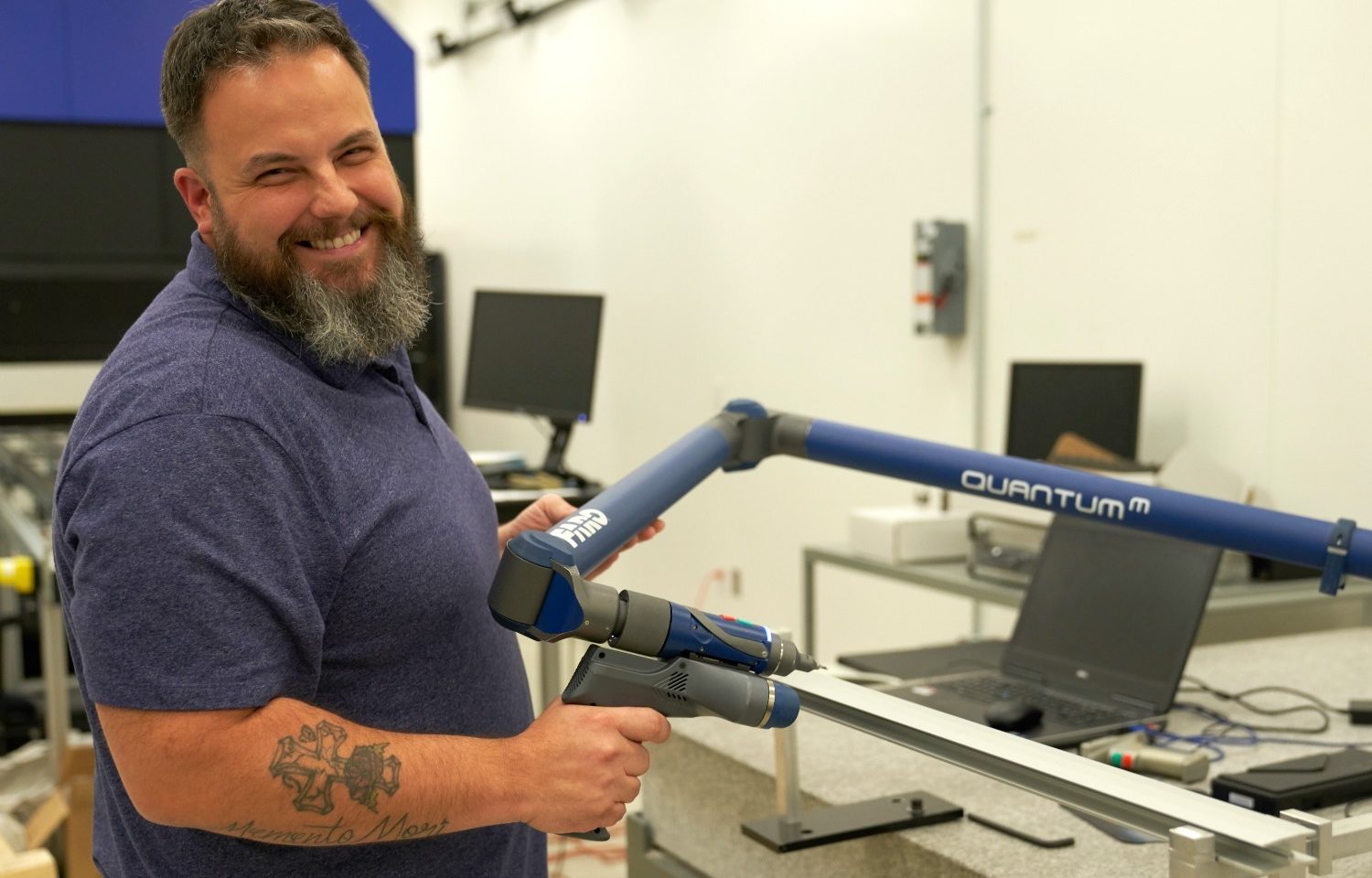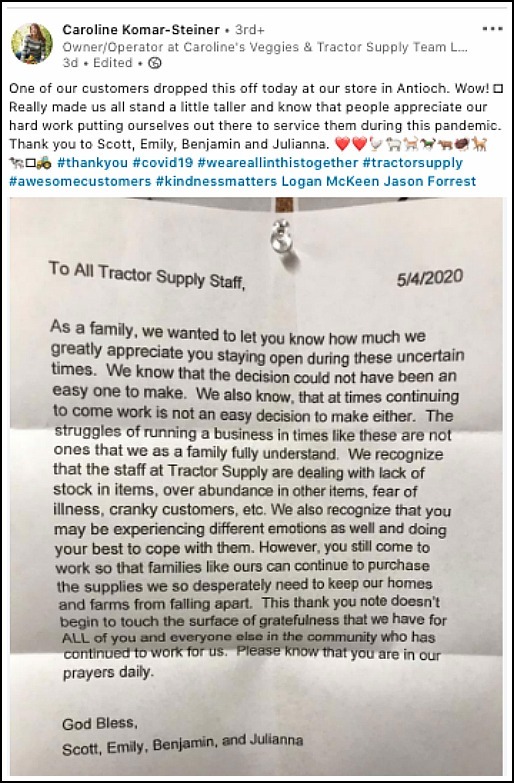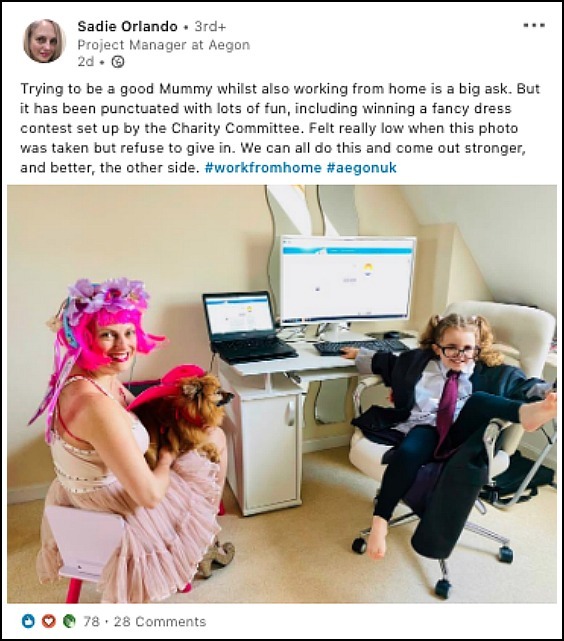Employees want to share their stories from the crisis. Here’s why.
Your team members have experienced tremendous change throughout the COVID-19 crisis. Employees want to share their stories of working in the pandemic, and these stories are important content for your employer brand.
Your employees’ lives and work have changed dramatically in the pandemic. Some are working with managers leading remote teams for the first time. Others are putting their health at risk by reporting for essential work each day.
Add life changes to the mix, too — homeschooling children, financial crisis, mental health stresses. Employees have gone through a lot, and each person has experienced this pandemic in their own way.
Employees want to share their stories right now
Since the pandemic began, people have been sharing more on social media. A large study of social media users showed a 61 percent increase in social media usage across all channels. Twitter alone is seeing 23 percent more daily users than one year ago.
The topics of thes increased posts are often related to the coronavirus. LinkedIn reports that company posts related to COVID-19 have 30 percent higher engagement than average posts. And, the LinkedIn messages with the highest engagement were stories of ways companies were helping take care of people. Your employees are engaged in your crisis response, and their recent experiences provide them with reasons to share their stories.
To prove our point, we researched examples of employees sharing their experiences to social media. To keep things positive, we focused on companies that have responded to COVID-19 with empathy and support for their team members.
Employees want to share their experiences from the COVID-19 crisis. Many already are. Here’s why.
1. Employees know you had a choice, and you chose them
As of April 30th, over 30 million people have applied for unemployment as a result of the coronavirus. While some companies cannot survive a crisis without some layoffs, strong leaders do everything possible to keep their people employed.
Employees know business leaders are navigating tough decisions right now, and they are grateful their well-being has been prioritized.
When Bank of America went public saying ‘no layoffs in 2020,’ employees were proud and grateful to share their story.
Companies also have to choose how they want to adapt to the realities of a COVID-19 world (or not). Parents are drowning right now without access to school and child care. When Microsoft announced that employees will receive 12 additional weeks of parental leave to help them as schools and daycares remained closed, Anne Michels shared her story.
2. Employees are really proud of the work they are doing in the crisis
Healthcare workers have always been heroes. But now, that word takes on a deeper meaning. COVID-19 has been a reminder of why they entered their profession to begin with: to save lives.
AdventHealth held a virtual news conference in April, featuring nurses and physicians sharing their first-hand accounts of working on a COVID-19 unit.
“The work and response that has occurred over the last two months at AdventHealth has been immense and unlike anything I’ve witnessed in my medical career.” –Dr. Neil Finkler, Chief Medical Officer pic.twitter.com/P60yPPIdlv
— AdventHealth (@AdventHealth) April 22, 2020
This renewed sense of purpose isn’t limited to healthcare. Tractor Supply Co. has played an essential role in supporting the heartland of America by providing necessary supplies to keep farms running. Caroline Komar, a Team Lead at the Antioch, Illinois location, shared a note she received from a customer.
3. Employees have depended on their team to get them through hard days
Stay at home orders and social distancing guidelines have created intense feelings of isolation around the world. Efforts to maintain (and even increase) engagement and morale haven’t gone unnoticed by employees.
Sadie Orlando, a Project Manager at Aegon, shares a photo celebrating her ‘fancy dress contest’ win. Her story is a reminder of the role team camaraderie can play in helping employees through this challenging time.
4. Employees have been empowered to innovate in the face of crisis
Companies across all industries have pivoted their work to support supplies and services needed on the frontlines. People, not companies, drive innovation. Smart companies empower their team members to create an impact
Back in March, Braskem America was met with high demand for polypropylene, a key fiber used to create the PPE that is desperately needed by healthcare workers on the frontlines. Brakem employees rose to the challenge. 43 team members volunteered to live at a factory and keep production running around the clock (they were paid). When they finally clocked out 28 days later, they had produced 40 million pounds of the lifesaving fiber.
We were just happy to be able to help. We’ve been getting messages on social media from nurses, doctors, EMS workers, saying thank you for what we’re doing. But we want to thank them for what they did and are continuing to do. That’s what made the time we were in there go by quickly, just being able to support them.
Joe Boyce, Operations Shift Supervisor, Braskem America
At a John Deere office in Illinois, Andrew Jarvie was impressed with the COVID-19 safety measures the company was taking. But he noticed one remaining opportunity for the virus to spread: door handles. Using his personal 3D printer, Andrew designed a small tool that can open doors without having to physically touch them. He shared a prototype with a colleague, who immediately jumped in to improve upon the design. John Deere supported the project and provided their employees access to equipment and the resources to produce more equipment at scale. Andrew’s idea and prototype has grown within the company to be produced at multiple John Deere factories, and help thousands.
Most engineers gravitate to trying to solve problems.
Andrew Jarvie, Test Engineer, John Deere
I wanted to use what my skills and talent are to address this issue.
Talent leaders, empower your employees to share their stories
Employees took the personal initiative to share many of the examples above. Companies didn’t ask these employees about their experiences, schedule phone interviews, or necessarily even share the content on their corporate accounts.
Imagine all the stories we haven’t heard yet. Ones that have been told at dinner tables, on Zoom calls, and shared on Slack. Don’t let them go uncaptured. Employees want to share their stories right now. Give them that opportunity.
Stories Inc. has been uncovering employee stories for nearly a decade, and we are here to help you through this process. Schedule time to learn more about how we are supporting companies efforts to uncover their COVID-19 employee stories.





